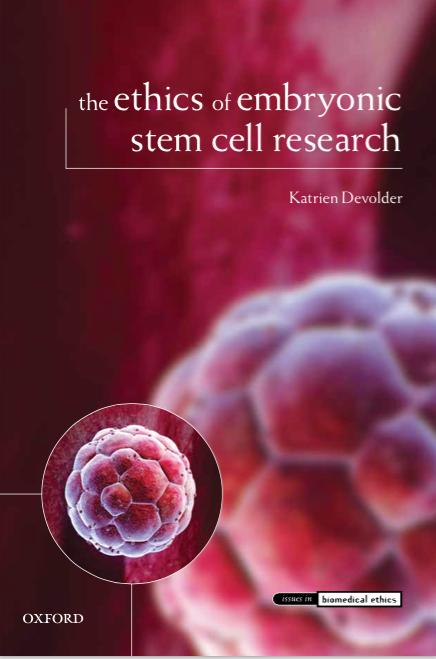New Book: The Ethics of Embryonic Stem Cell Research 해외관련소식
2015.02.05 13:28 nibp Edit
관련해외기관 공유 (Johns Hopkins Berman Institute of Bioethics)
The Stem Cell Policy and Ethics (SCOPE) 에서 공유한 자료임
[도서관에서 구입예정]
ttp://us1.campaign-archive2.com/?u=0f543d0b018f081433751de11&id=032efdf9d5
Published January 29, 2015 |
There is wide agreement that embryonic stem cell research holds unique promise for developing therapies for currently incurable diseases and conditions, and for important biomedical research. However, as it is currently done, the isolation of embryonic stem cells involves a process in which an early embryo is destroyed, which many find highly problematic.
This has resulted in what I refer to in my book as
The Problem. Either one supports embryonic stem cell research and accepts resulting embryo destruction, or one opposes embryonic stem cell research and accepts that the potential benefits of this research will be foregone.
I focus squarely on the Problem, and more in particular, on two types of response to it.
The first type of response has been to adopt a middle ground position—a position between the dominant opposing views on the permissibility of embryonic stem cell research. The two dominant opposing views hold respectively that all embryonic stem cell research is morally unacceptable and that embryonic stem cell research is no more problematic than other kinds of research in cell biology. By contrast, middle ground positions—positions between these two views—distinguish between different types or aspects of embryonic stem cell research, accepting some but not others. Examples are the popular position that it is presumptively permissible to derive stem cells from embryos left over from IVF treatments but not from embryos created especially for the purpose of research, or the position that it can be permissible to use embryonic stem cells in research but not to derive these cells, since this involves embryo destruction.
Practical Ethics : Ethics in the News
http://blog.practicalethics.ox.ac.uk/2015/01/new-book-the-ethics-of-embryonic-stem-cell-research/
University of Oxford

Trackbacks 0
Comments 0
Leave Comments
댓글 쓰기 권한이 없습니다. 회원 가입후에 사용 가능합니다